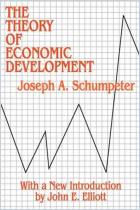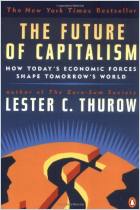Some consider Joseph A. Schumpeter the greatest economist of the 20th century. Only an intellect of his towering stature would be able to present a case that, while Marx was wrong about how capitalism would collapse, he was probably correct that it eventually would. Schumpeter also contends that socialism may eclipse free market economies, news he feels society should greet with angst. He believed that capitalism’s doom would proceed not from a revolution by an angry proletariat but rather as a result of successes giving rise to a class of elites who would gradually institute systems of central control.
Will Capitalism Die?
Was Karl Marx right? If so, was he also wrong? Marx was correct that capitalist economies tend to destroy themselves. He was incorrect that this process occurs due to the economic instabilities that capitalism inherently generates. And Marx’s “theory of vanishing investment opportunity” – the notion that capitalist economies ultimately stagnate due to declining profits and a lack of promising new investment opportunities – is dubious at best. Capitalism will die not from its economic failures but rather from its economic successes, generated as a byproduct of an overwhelming hostility to its social and political effects. This, in turn, will induce governments gradually to enact centralized measures.
Innovation and entrepreneurialism are essential features of capitalism, yet it undermines them. Technological progress and the entanglements of capitalism’s large bureaucracies tend to devalue innovation, replacing individual initiative with regulatory procedures and bureaucratic committees. Capitalism also produces hostility in the body politic because its very progress systematically destroys the social strata of those who initially advance...
Joseph A. Schumpeter was born in 1883 in the present-day Czech Republic. He served as Austria's minister of finance from 1919 to 1920, as president of the Biederman Bank for the next four years and as a professor at the University of Bonn from 1925 to 1932, when he relocated to Harvard. In 1933, he became the founding president of the Econometric Society. He taught at Harvard until his death in 1950. His magnum opus, History of Economic Analysis, was published posthumously in 1954.












Comment on this summary